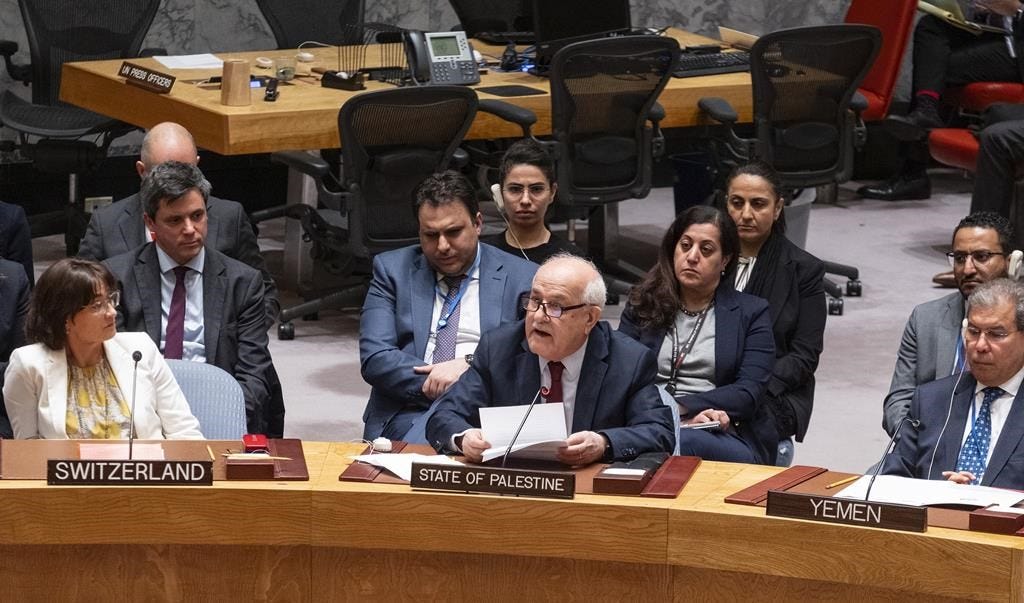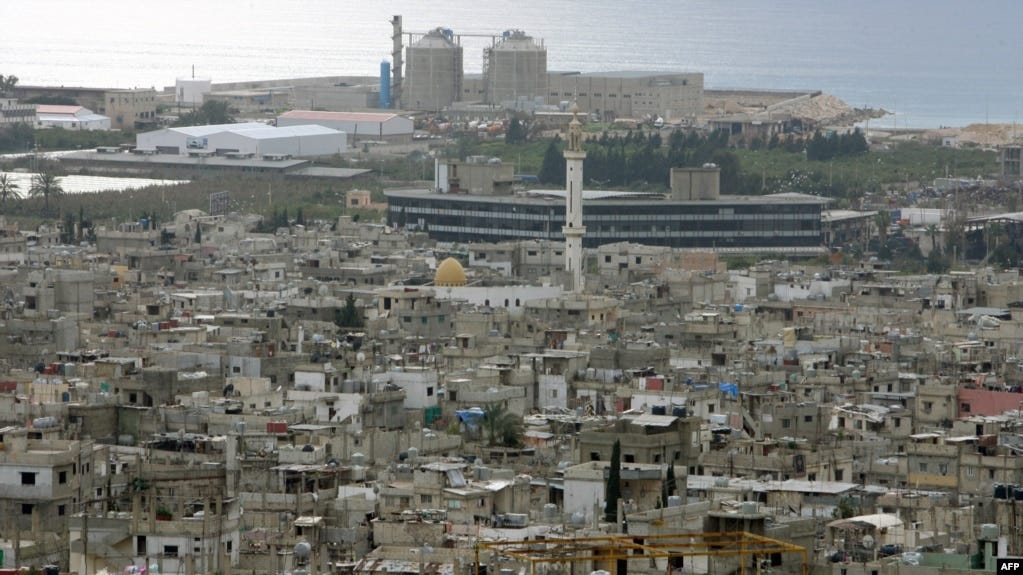For decades, the world has treated Palestinians like, well, children, incapable of making a single independent decision. Everything they do—every rocket, every riot, every suicide bomb, every political misstep—is framed as a mere reflex to Israel's actions, as if they have no free will of their own. This, at times, well-meaning but ultimately patronizing perspective has seeped into political discourse, media narratives, and international diplomacy, ensuring that Palestinians are always seen as victims rather than as people responsible for their own fate. In turn, Israel is always framed as the perpetrator of some cosmic evil against the Palestinian people, being blamed for everything the Palestinians have ever done.
This approach is not just inaccurate; it’s downright insulting. It strips Palestinians of any dignity that comes with self-determination, while also providing a convenient excuse for their leaders to avoid accountability. After all, if the entire world insists that they have no agency, why should their leadership bother making responsible choices? Instead, they can continue playing the role of the helpless underdog while engaging in actions that keep their people trapped in the same miserable cycle. In fact, this is exactly what they have done, and their politics and actions on the world stage - from the UN down - is best explained when understanding that the Palestinians are never given any agency for their own actions.
Perpetual Victims
The standard global narrative goes something like this: Palestinians are always reacting—never acting. If Hamas fires rockets into Israel, it's because of an Israeli military operation, a settlement expansion, or, who knows, maybe the weather, caused by Jewish space lasers. The idea that Hamas, an organization with a clear ideological mission and governing power, might make strategic choices for reasons beyond simple reaction is simply too radical for most commentators to consider. Maybe the clearly stated Hamas goal of eradicating Israel (a pretty simple and straightforward aim) is too complicated for people to understand. Why would they want to destroy Israel? It must be because of something that Israel did, like…existing.
When the humanitarian crisis in Gaza is discussed, all fingers point to the Israeli blockade. Conveniently forgotten is the fact that Hamas has been in charge of Gaza since 2007 and has chosen to spend its resources on building tunnels and launching missiles instead of, say, developing infrastructure. The possibility that Hamas is prioritizing its military/terrorist ambitions over the well-being of its own people? Nope—let’s just blame Israel and move on. Please don’t ask the civilians in Gaza what they think.
Similarly, in the West Bank, the Palestinian Authority (PA) has long perfected the art of mismanagement and corruption, yet somehow, international bodies continue pouring in money with no strings attached. That money mysteriously disappears, and yet, no one asks where it went. Instead, the world just sighs and blames the lack of a Palestinian state on—you guessed it—Israel.
Let’s ask the almost-90-year-old Palestinian President, Mahmoud Abbas, what his goals are for the future? Who his successor will be? What he has in mind for the development of a Palestinian state and economy, to ensure that it is focused on the well-being of its people and not simply the destruction of Israel if it ever comes into being? Does he have plans? Or does he simply intend to continue blaming Israel?
Diplomatic and Political Narratives
If there's one thing the diplomatic community loves, it’s treating Palestinians as a people who must be rescued rather than as actors who must make hard political choices. When peace talks fail, it’s never because Palestinian leaders refuse to compromise. No, it’s because Israel didn’t give them exactly what they wanted on a silver platter.
Take the 2000 Camp David Summit. Israeli Prime Minister Ehud Barak offered a deal that included a near-total withdrawal from the West Bank, a total withdrawal from Gaza, and a shared arrangement for Jerusalem. Yasser Arafat walked away without even making a counteroffer. Not just that, he launched a brutal and bloody intifada. And yet, somehow, the world blamed Israel for the summit’s failure. Because, obviously, when someone refuses a peace deal, it's always the other guy’s fault.
Not just that, when the Palestinians come back to the table, the talking heads are shocked that Israel has retreated from its previous generosity, as if terror doesn’t have a price. Why would Israel not offer the exact same thing after hundreds of its civilians are mowed down in bus bombs and suicide attacks? The unwillingness to consider that Palestinian actions have consequences is mind-boggling.
Even when Palestinian leadership cracks down on dissent, jails journalists, and cancels elections (because who needs democracy when you’ve been in office for nearly two decades without a mandate?), and pays the families of terrorists who kill Israelis (pay-for-slay), the global community remains silent. Why hold Palestinian leaders accountable when it’s so much easier to just say “Israel’s occupation is to blame”? This is how we are trained to see the world today: through the lens of oppressor-oppressed dynamics only. Period.
Internal Palestinian Politics and the Denial of Responsibility
Of course, it’s not just the international community playing this game. Palestinian leaders themselves have mastered the art of blaming Israel for everything, using it as a convenient excuse to avoid governing responsibly. There’s an old joke about how many Palestinian leaders it takes to change a lightbulb? None, they just make their people sit in eternal darkness and forever blame the Jews.
Hamas has been running Gaza into the ground for nearly two decades since their coup in 2007, yet every crisis is Israel’s fault. Power shortages? Must be the blockade. Economic collapse? Definitely Israel. Why is Egypt’s border to Gaza closed? Probably Israel’s fault too; don’t expect the Egyptians to help. The fact that Hamas has outright refused to negotiate with or recognize Israel, has diverted humanitarian aid toward weaponry, and routinely crushes (read: murders) opposition voices? Shhh—better not talk about that.
Meanwhile, in the West Bank, President Mahmoud Abbas has clung to power since 2005, canceling elections left and right. He has no clear successor, and who knows what the PA will look like when he dies. When people protest? Well, nothing a little security crackdown can’t fix. But don’t expect the world to care—because as long as Israel exists, Abbas gets a free pass to run his fiefdom as he pleases.
The Consequences of Denying Palestinian Agency
Much of this was seen clearly this past week, when President Trump surprised the world by suddenly announcing that perhaps Gaza should be cleared out, rebuilt, and that there should be an opportunity for America to take over and rebuild. OK, let’s ignore whether this is an actual proposal, or whether this is just Trump-being-Trump, and upping the ante to change the status quo. But immediately, the pundits were up in arms. How dare he suggest relocating 2 million Palestinians? Where would they go? Egypt? Jordan? Lebanon? Norway? Spain? Ireland?
Ben Rhodes, who has never been a friend of Israel’s, Tweeted the following this week:
He seems to have forgotten that the Palestinian people have actually decided where and how they want to live. Well, their leaders have decided for them: but it is apparently in a hellish wasteland on the Mediterranean, that has been devastated by years of war on account of a genocidal act perpetrated against a neighbouring country on October 7, 2023.
But even more telling, is that many Gaza-residents have actually said, after Trump’s suggestion that they leave Gaza, that if ships were to dock at the Gaza Port, and allow them transit to Norway or Spain, with the guarantee of some basic healthcare, they would be happy to leave. But let’s not highlight what they want or say. Let’s instead focus on what the anti-Israel activists say the people of Gaza want. Pawns, as ever.
By treating Palestinians as eternal victims with no responsibility for their actions, the world is doing them no favours. This mindset encourages bad leadership, rewards militant groups, and discourages the political reforms that could improve Palestinian lives.
If Palestinian leadership knew that the international community expected more from them—like, say, actual governance and peace negotiations—they might finally feel compelled to step up. Instead, they’re given the easiest job in the world: blame Israel for everything, take no responsibility, and wait for the next round of foreign aid to roll in. Perhaps the new dynamics in global affairs, including a move towards the right in America and Europe, will start to change this, but this is an entrenched position that will take time to change.

This dynamic also makes peace impossible. Real peace requires both sides to make difficult choices and compromises. But if one side is constantly shielded from accountability, why would they ever change their strategy? Why negotiate when you can just wait for the world to pressure Israel instead? This is why I always say those people protesting on the streets are not pro-Palestinian; they are anti-Israel. They don’t care for the Palestinian people as long as they are besieged, or at least feeling besieged, because when Palestinians are suffering, the Israelis look bad. And that’s ultimately all that matters.
Even worse, this narrative fuels extremism. If every act of Palestinian violence is excused as a justified reaction rather than a strategic choice, it reinforces the idea that violence is not only acceptable but inevitable. As long as Palestinians are told that they are simply reacting to oppression, there’s no incentive to explore alternative paths to statehood and stability.
A New Approach: Recognizing Palestinian Agency
Here’s a revolutionary idea: what if we treated Palestinians like fully capable adults who can make decisions—and be held accountable for them? What if we acknowledged that Palestinian leadership has agency and is responsible for the choices it makes?
This would mean holding the PA accountable for corruption and democratic backsliding. It would mean recognizing that Hamas’s military strategy is not just a reaction to Israel but a deliberate political choice. It would also mean acknowledging that Palestinian leaders bear responsibility for the suffering of their people, just as Israeli leaders do for theirs.
Most importantly, it would mean ending the condescending, infantilizing narrative that Palestinians are nothing more than victims waiting for the world to rescue them. Agency is taken, it is not given. But also treating them like responsible actors isn’t an act of blame—it’s an act of respect. If that’s what they want, they should take it, and run with it, and take the wins with their losses. And it’s the only way to actually move toward a solution rather than continuing this endless, tiresome cycle of excuses and inaction.
As my high school history teacher Mr. Gropper used to say when one of us didn’t do our homework: It’s a free country, and that means you’re free to fail, if you so choose.








Really well thought out and articulated article.
It must be Israel's fault that all the Hamas leaders were billionaires and the Abbas' family has amassed a fortune of $400,000,000. If only Israel would have stopped transferring their money to them.